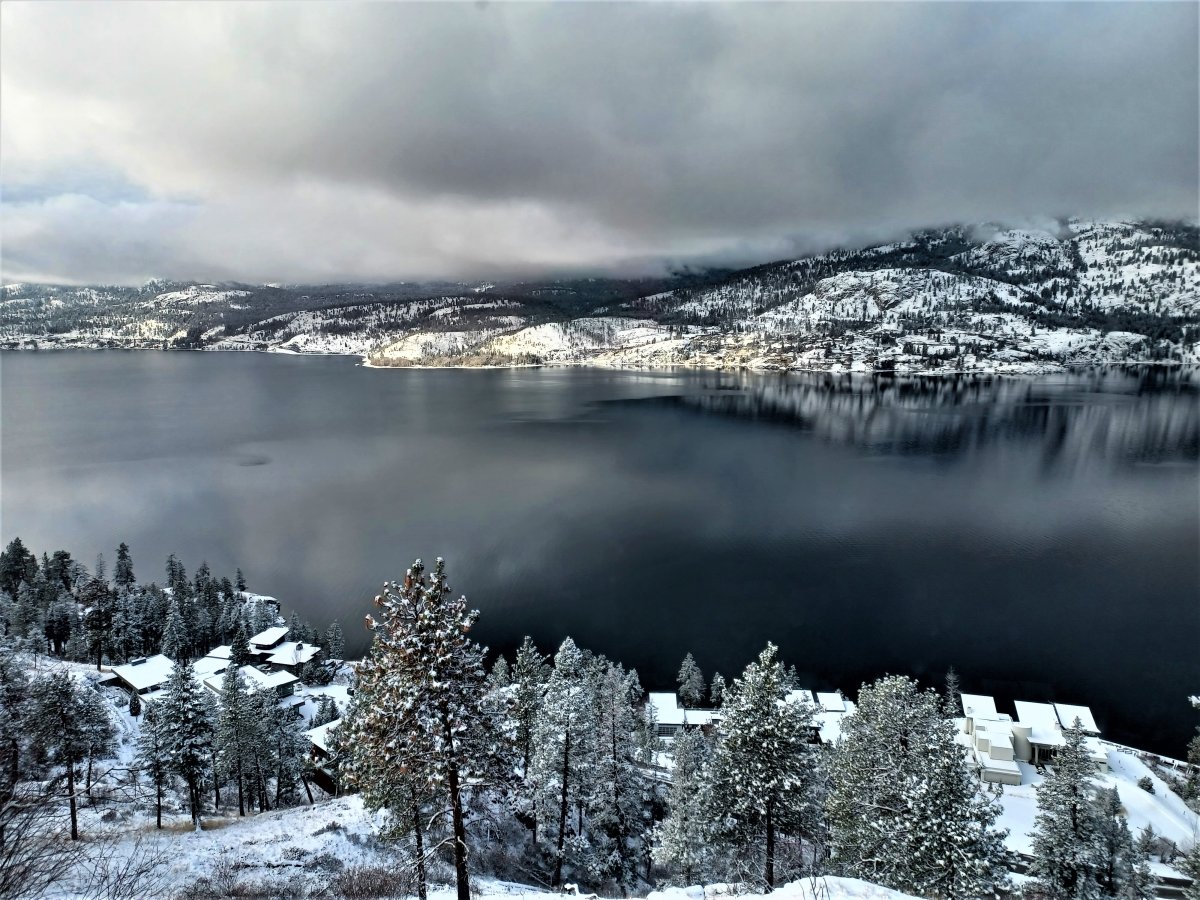B.C. has plunged into a deep freeze courtesy of a frigid arctic air mass that’s pushing temperatures well below seasonal norms.

“Across the province, we shattered at least 40 different records (Monday) including some in the Okanagan,” Kasia Bodurca, weather anchor for Global News said.
Bodurca said Osoyoos saw a low of -17.6 C, which broke a Dec. 27, 1996, low-temperature record of -14.9 C. Summerland temperatures plummeted to -22.3 C, breaking a 1990 record of -13.3 C, Princeton was -31.9 C which smashed the 1996 record of 21.8 C, Salmon Arm saw temperatures fall to – 27.5 C, which just a bit cooler than the -26.8 C record set in 1996 and Vernon was -22.9 C Dec. 26, which broke the record of -12.3 C in 2009.
She said it also felt like -30 C in Kelowna and Kelowna’s daytime low was -26 C. Whether that’s a record remains to be seen.
On Boxing Day, there were also multiple temperature records broken across B.C., though Summerland was the only location in the Okanagan that set a record. On Dec. 26, temperatures in that South Okanagan city dropped to -19.5 C according to Environment Canada, beating out the previously-held record of -17.8 C set in 1948.
While the effects of the arctic air mass have made for some chilly days and nights in the Okanagan, Borduca said the change in weather is not as extreme as that seen in some coastal areas.
“That is why there aren’t any arctic outflow warnings which you don’t typically see for interior sections in the Okanagan, but it is still cold,” she said.
And it’s still uncommon.

“We would normally see this set up later into the winter. This is early for the winter season to see such cold temperatures,” she said.
“When we are looking at daytime highs, we haven’t seen cold temperatures like these since the ’90s.”
Bodurca said that there will likely be more records broken as the cold continues, and that’s why it’s important to stay warm, check in on loved ones and layer up when in the elements.
“These conditions can sting, and frostbite can develop in just a matter of moments, especially when wind chills are near – 30 C, as we’re experiencing in the north,” she said.




Comments